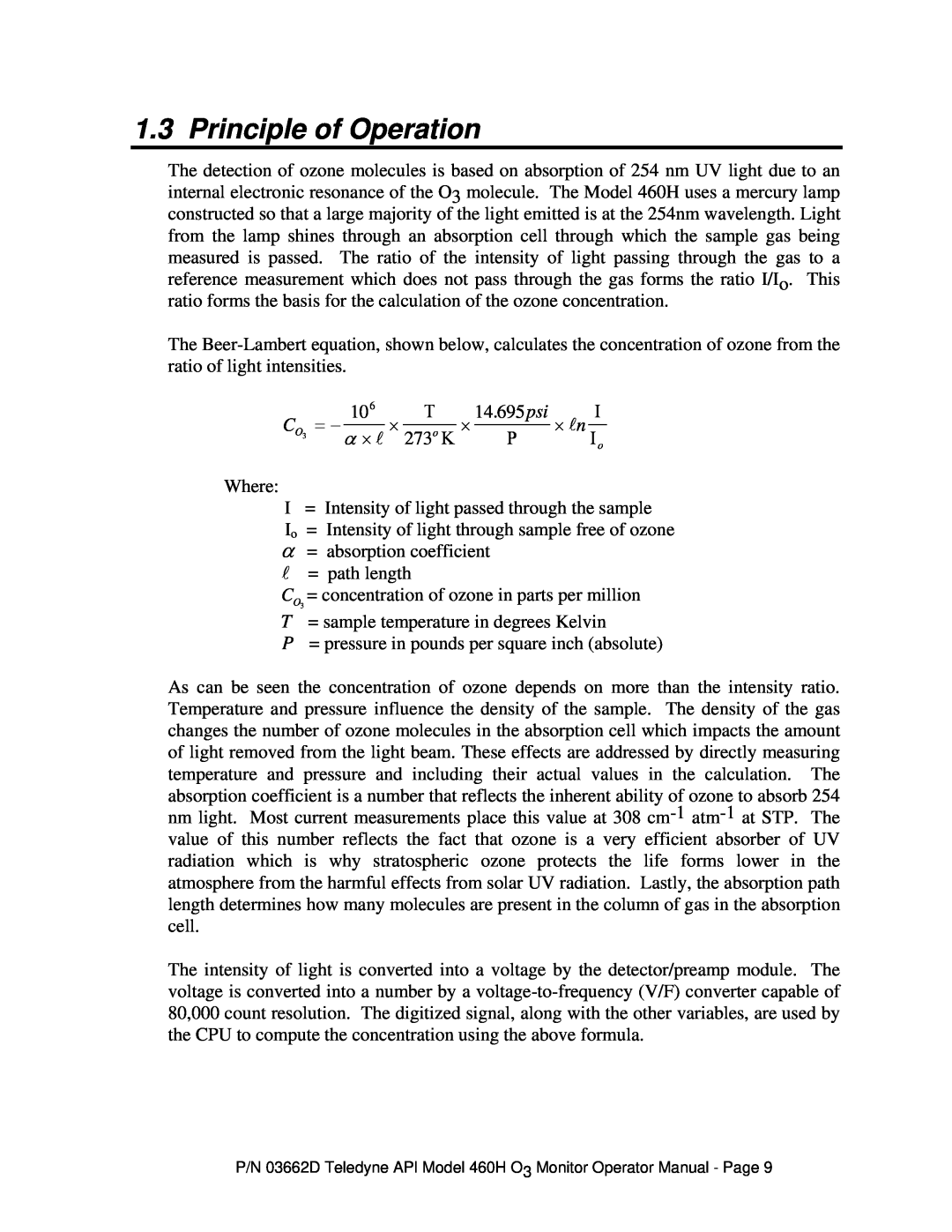1.3 Principle of Operation
The detection of ozone molecules is based on absorption of 254 nm UV light due to an internal electronic resonance of the O3 molecule. The Model 460H uses a mercury lamp constructed so that a large majority of the light emitted is at the 254nm wavelength. Light from the lamp shines through an absorption cell through which the sample gas being measured is passed. The ratio of the intensity of light passing through the gas to a reference measurement which does not pass through the gas forms the ratio I/Io. This ratio forms the basis for the calculation of the ozone concentration.
The
|
| 106 |
| Τ | 14.695psi |
| Ι | |||
CO3 = − |
| × |
| × |
| × ln |
|
| ||
α × l | 273o Κ | Ρ | Ιo | |||||||
Where: |
|
|
|
|
|
|
|
|
|
|
I | = | Intensity of light passed through the sample | ||||||||
Io | = | Intensity of light through sample free of ozone | ||||||||
α= absorption coefficient l = path length
CO3 = concentration of ozone in parts per million
T= sample temperature in degrees Kelvin
P= pressure in pounds per square inch (absolute)
As can be seen the concentration of ozone depends on more than the intensity ratio. Temperature and pressure influence the density of the sample. The density of the gas changes the number of ozone molecules in the absorption cell which impacts the amount of light removed from the light beam. These effects are addressed by directly measuring temperature and pressure and including their actual values in the calculation. The absorption coefficient is a number that reflects the inherent ability of ozone to absorb 254 nm light. Most current measurements place this value at 308
The intensity of light is converted into a voltage by the detector/preamp module. The voltage is converted into a number by a
P/N 03662D Teledyne API Model 460H O3 Monitor Operator Manual - Page 9
